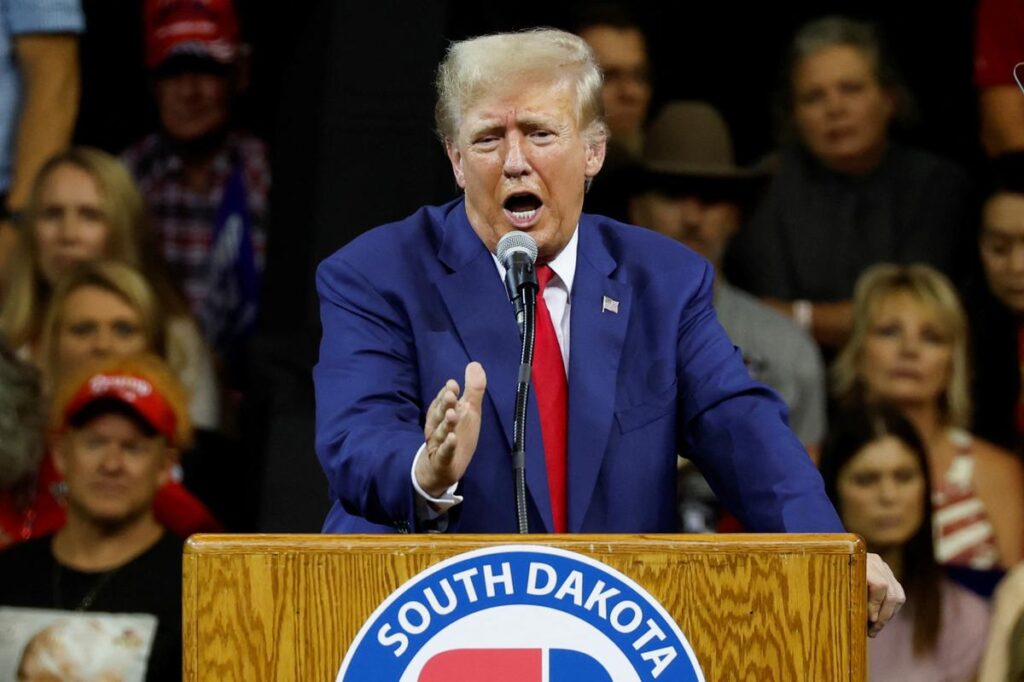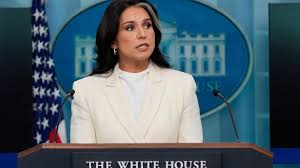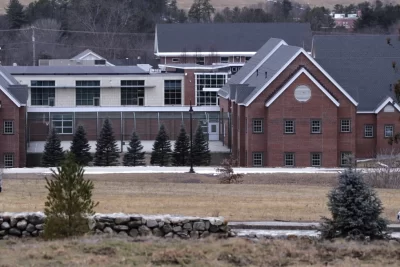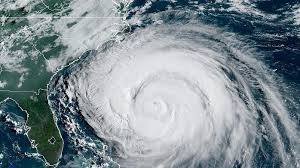
Lawyers for Donald Trump on Monday asked the federal judge presiding over his election subversion case in Washington to recuse herself, saying her past public statements about the former president and his connection to the Jan. 6, 2021, riot at the U.S. Capitol call into question whether she can be fair.
The recusal motion from Trump’s lawyers takes aim at U.S. District Judge Tanya Chutkan, a former assistant public defender who was nominated to the bench by President Barack Obama and has stood out as one of the toughest punishers of Jan. 6 defendants. The request is a long shot given the high threshold for recusal and because the decision on whether to recuse belongs to Chutkan, who is unlikely to see cause to step aside from the case.
Even so, the request that she give up the high-stakes trial marks the latest flashpoint in already delicate relations between the defense team and the judge, who has repeatedly cautioned against inflammatory public comments from Trump but has nonetheless been lambasted on social media by him. Special counsel Jack Smith’s team signaled its own concern about his comments, writing last week that Trump’s daily statements — he has derided her as “highly partisan” — could taint a potential jury pool.
Chutkan ordered Smith’s team to file any opposition to Trump’s recusal bid by Thursday.
Chutkan last month scheduled the trial for March 4, 2024, over the vigorous objections of defense lawyers who said that would not give them enough time to prepare. The case in Washington, charging Trump in a four-count indictment with plotting to overturn the results of the 2020 election, is one of four criminal cases confronting the former president as he seeks reelection to the White House.
But the judge last month rejected Trump’s demand that he step aside, saying he is certain of his “ability to be fair and impartial.”
Federal judges are supposed to step aside in cases where their “impartiality might reasonably be questioned.” Other bases for recusal include a personal bias against one of the parties. Trump’s lawyers say Chutkan’s comments in cases against Jan. 6 rioters show she has “already formed an opinion about President Trump’s guilt” and many of the allegations that underpin the indictment against him.
“Although Judge Chutkan may genuinely intend to give President Trump a fair trial — and may believe that she can do so — her public statements unavoidably taint these proceedings, regardless of outcome,” the defense team wrote. “The public will reasonably and understandably question whether Judge Chutkan arrived at all of her decisions in this matter impartially, or in fulfillment of her prior negative statements regarding President Trump.”
Chutkan has often handed down prison sentences in Jan. 6 cases that are harsher than Justice Department prosecutors recommended. The judge also previously ruled against Trump in a separate Jan. 6 case, refusing his request to block the release of documents to the U.S. House’s Jan. 6 committee by asserting executive privilege.
Trump’s lawyers quoted from remarks Chutkan made in a 2022 sentencing hearing for Christine Priola, a Jan. 6 defendant from Ohio who pleaded guilty to obstructing Congress’ certification of Joe Biden’s electoral victory — one of the same charges Trump is facing.
“The people who mobbed that Capitol were there in fealty, in loyalty, to one man — not to the Constitution, of which most of the people who come before me seem woefully ignorant; not to the ideals of this country, and not to the principles of democracy,” Chutkan said. “It’s a blind loyalty to one person who, by the way, remains free to this day.”
The defense also cited Chutkan’s comments from the sentencing of a rioter from Florida who attacked police officers working to hold back the crowd. During the December 2021 hearing for Robert Palmer, who was sentenced to more than five years in prison, Chutkan said the defendant “made a very good point” that the “people who exhorted” and encouraged him “to go and take action and to fight” had not been charged. Chutkan added that she doesn’t “make charging decisions” and has no “influence on that.”




